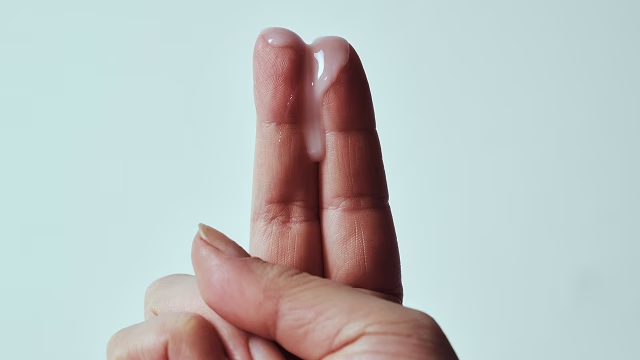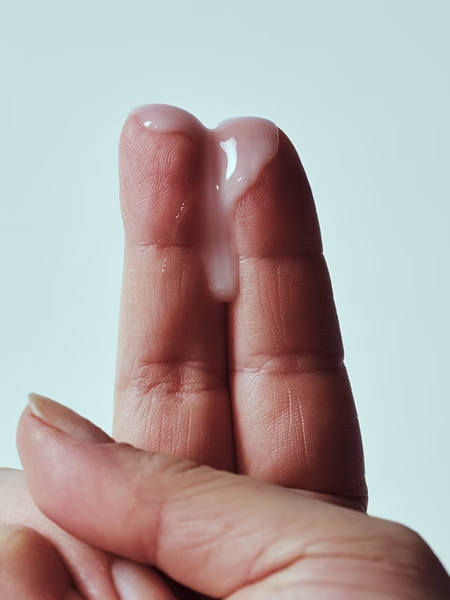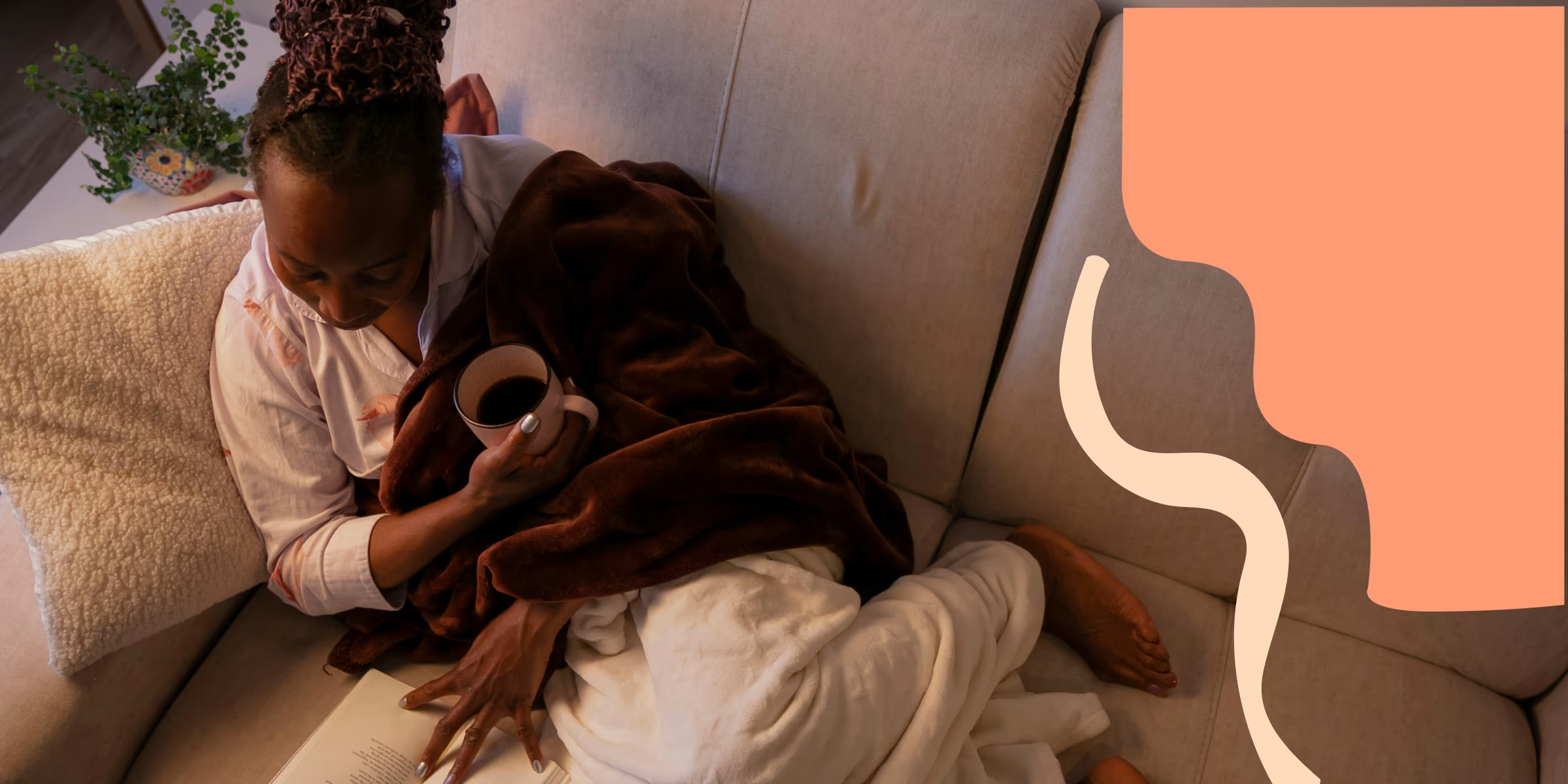Bacterial vaginosis, commonly referred to as “BV,” is the most common vaginal infection that people experience. Some of the symptoms of BV can leave people wondering if they’re doing something wrong or feeling dirty—but in reality, the vagina is extremely sensitive and so many factors can set off its natural balance!
Symptoms of bacterial vaginosis (BV)
While BV is incredibly common, up to 84% of people who test positive for the vaginal infection don’t experience symptoms. For those who do, these are the top signs to look out for:
1. Vaginal odor
One of the classic symptoms of BV is a fishy odor that is often worse after having sex. This odor occurs when the pH of the vagina becomes more basic, and causes overgrowth of bacteria. Some people try to mask the smell with fragrances, but these can irritate your vagina’s pH further.
2. Vaginal discharge
BV has a characteristic thin white or gray discharge that happens when certain bacteria overgrows and disrupts the normal balance of pH in your vagina. It is completely normal, and does not mean that you are dirty or unhygienic, but can be incredibly frustrating to deal with.
3. Vaginal itching
Vaginal itching is often a symptom of another common diagnosis: yeast infections. Yeast infections and BV often happen at the same time as they’re both caused by an imbalance of the “good” bacteria in your vagina. If you’re experiencing itching and thin, gray discharge or fishy odor, this might be a sign of a co-infection.
4. Burning during urination
When you have additional discharge during a BV infection, it adds extra moisture to your skin which can make it more fragile and irritated. When you pee, it may cause a stinging sensation when it touches that fragile skin. This is a less common symptom of BV, and could indicate a different infection—especially when paired with vaginal discharge. If you’re experiencing burning when you pee and vaginal discharge, you should seek in-person care.
If you’re experiencing these symptoms and think you might have BV, you can consult with a Hey Jane provider in just 1 business day who can recommend the right treatment for you—all from the comfort and convenience of your phone.


Risk Factors for bacterial vaginosis (BV)
Your vagina and vulva can be sensitive to changes—that includes foreign objects (like a penis) and exposure to liquids (like blood or semen) that have a different pH level than your vagina.
1. Douching
Douching, or cleaning inside and around the vagina, can increase the risk for many infections—including BV. Think of the vagina as a self-cleaning oven that has all the tools it needs to stay happy and healthy. When new factors are introduced (even water!) it can disrupt your vagina’s natural balance, cause irritation, and throw it out of whack.
2. Having unprotected sex
Your vagina’s pH is happiest at 4.5, and semen’s pH hovers around an 8. Exposure to semen can disrupt that natural pH balance, causing bacteria overgrowth and BV. This can happen any time you have penis-in-vagina sex without a condom—whether it’s with a new partner, multiple partners, or with a regular partner.
Having sex can increase your risk for BV as it introduces more factors that can disrupt the natural balance of “good” and “bad” bacteria in your vagina. Using a condom can help reduce the risk of BV, as well as many STIs.
If you and your partner both have vaginas, there are some studies that show specific strains of BV can be passed between partners. If your partner is semen-producing, having semen in the vagina may disrupt the natural pH of your vagina and cause BV. Regardless, getting BV after sex does not mean your partner is cheating as there are many causes for BV. For now, treatment for your partner is not recommended if you get diagnosed with BV.
3. Natural lack of lactobacilli bacteria
Lactobacillus is one of the “good” balancing bacterias in the vagina which helps keep things in check. Some people have a lower amount of this bacteria, and we don’t quite know why yet, but this can create an environment that makes you more susceptible to BV.
4. Pregnancy
Pregnancy does not cause BV, but the hormonal changes experienced during pregnancy can impact the natural balance of “good” bacteria in the vagina. If you are pregnant, it is important that you get evaluated in-person because some vaginal infections can increase your risk of preterm labor.
5. Having an IUD
Sometimes, having an IUD inserted can cause microscopic spotting in your vagina that can disrupt the pH balance in your vagina. While the strings of an IUD are antimicrobial, their presence alone as a foreign body in the vagina could create irritation.
6. Vaginal bleeding
Vaginal bleeding, like when you’re on your period or during a medication abortion, can disrupt the natural pH of your vagina and trigger a BV infection. While the vagina is a slightly more acidic environment, blood has a slightly basic pH.
Want to start treatment ASAP? Fill out our intake form, and your Hey Jane provider will diagnose your BV and recommend the right treatment for you.
When to see a doctor for bacterial vaginosis (BV)
If you’re experiencing vaginal discharge, fishy vaginal odor, and/or vaginal discomfort, consulting with a doctor will help confirm a diagnosis so you can get treatment and feel better ASAP. If you’re looking to skip the in-person visit, Hey Jane’s Clinical Care team can help. We offer virtual consultations, accept select insurance plans as well as out-of-pocket payments, and send meds to your local pharmacy of choice for fast, easy pick up. Click here to start intake.
How to prevent bacterial vaginosis (BV)
Although it can be a frustrating diagnosis to deal with, there are ways to prevent BV. It’s recommended that you:
1. Practice safe sex
Using a condom prevents semen from interacting with your vagina, which can alter its natural pH and trigger bacterial vaginosis.
2. Don’t douche
Douching can alter your vagina’s natural balance of bacteria, changing the acidic environment that normally protects against infections. Douching can create an environment where certain types of bacteria overgrow, causing BV.
3. Avoid scented products around the vagina and vulva
The vagina and vulva are delicate areas of the body that are more sensitive to soaps, sprays, and wipes—especially those that are scented. There are many vaginal and vulvar care products on the market, but for most people, simply washing with water is enough.
4. Maintain a healthy diet (including probiotics)
While the studies are mixed, making sure you’re staying hydrated and eating a well-balanced diet that includes probiotics like yogurt may help maintain a health balance of bacteria throughout your body—including your vagina.
5. Boric acid
Some people find that if they’re prone to BV, using a boric acid suppository around their period or after sex can help prevent an infection. These suppositories are inserted into your vagina and can be found at many drug stores.


Want to take action?
Join the Un-Whisper Network














.avif)


